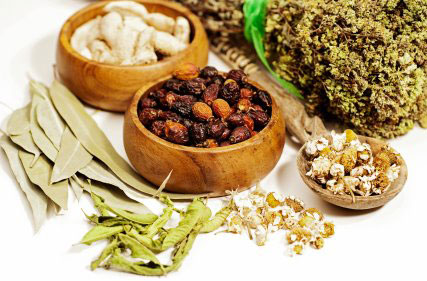
Article: A NATURAL APPROACH
Arthritis is characterised by an inflammation and or pain in a joint or joints. There are many different forms of arthritis, the two most common are Osteo-arthritis and Rheumatoid Arthritis
Osteo-Arthritis is the most common and is usually attributed to wear and tear of the joint causing it to stiffen and become painful and usually manifests from middle age onwards
Rheumatoid Arthritis is a more serious disorder, being in the category which is known as auto-immune disease. The immune system becomes unable to distinguish between invading organisms and normal body cells, and tissue around the joints is destroyed.
Arthritis is one of the most common diseases treated by natural therapists, and one that we can offer positive curative therapies even in fairly advanced cases. It’s a joy to be able to restore mobility and life to stiff and immobile limbs which have rendered the sufferer a bundle of misery.
This complaint can be cured through correcting diet, cleansing the liver, blood and bowels, using positive mental attitudes and a naturopathic lifestyle. But it takes determination, patience and perseverance and it is not an overnight therapy, and sometimes you’ll feel that you are not getting anywhere. It pays to consult a qualified Naturopath who will guide you on the correct procedure for your specific needs, as we are all different, and therefore our deficiencies and needs will be different.
Arthritis is an acid condition in the joints that has developed over the years by the accumulation of unwanted toxic fluid that the body cannot cleanse through the normal elimination processes. The pain comes from the depositing of this toxicity as it crystallizes and settles, increasing in size over the years to misshape the joints. As the acidity levels increase crystallization takes place and this settles into the joints creating pain and inflammation.
Allergies
There is a strong link with food allergies and Arthritis; I have had cases of arthritic patients improving dramatically once the allergens have been removed from the diet, only to worsen almost immediately after re-exposure to the foods concerned.
The most common of these foods would be the ‘Deadly-Night Shade’ family (i.e. – Potatoes, tomatoes, eggplant, peppers, chilly, capsicum, & tobacco). Other common foods are citrus fruit, dairy foods, wheat, eggs & chicken. As it is difficult to know whether you have an allergy or not to certain foods, it pays to see a Naturopath to get some tests done.
Dietary Considerations
- Remove allergic foods from diet.
- Eat more Alkaline foods i.e. – Salads, green leafy vegetables, ripe fruit – preferably those in season.
- Cut down on acid foods i.e. – Sugar, meat, eggs, dairy foods, white flour products.
- Drink 6 -8 glasses of pure water per day.
- Drink 1 dspn of cider vinegar in water with honey, 20 mins before a meal.
- Reduce weight, if necessary.
Beneficial Foods
Vegetables: Alfalfa, wheat grass, watercress, celery, parsley, garlic. Fruit such as – Bananas, sour cherries, pineapples, sour apples, papayas, avocado Vitamin, Mineral and Herbal Therapy may assist.
Exercise is essential for reducing pain and retarding joint deterioration.
Massage Therapy
On a regular basis is beneficial for detoxification, elimination, circulation and for stress management.
N.B. As Arthritis is a condition which develops over a long period treatment may be needed for up to 2 years.
By Tina Pritchard N.D. Reg. Naturopath
Article: FAT & CHOLESTEROL “The Good, The Bad & The Ugly”
- *Coronary Heart Disease is the leading cause of death!
- *80% of Heart Disease patients have the same blood cholesterol as people who do not develop heart disease
- *80% of Heart Disease Patients have an inherited lipoprotein abnormality!
- *Having a low blood cholesterol level does not mean you are safe from heart disease!
- *A high Cholesterol level doesn’t automatically put you in a high risk category.
- *Highly elevated Cholesterol levels have actually been associated with longer life for people over 60.
Description
What is Cholesterol?
Cholesterol is a fatty substance manufactured by the liver. It is found only in animal fat, it is not contained in vegetable fat. Cholesterol is needed to form sex and adrenal hormones, Vitamin D and bile salts. It also has vital functions in the brain and nerves.
The body manufactures about 1,000mg of Cholesterol daily. Too much cholesterol can cause fatty plaques on arterial walls which narrows the artery. This condition is known as “Atherosclerosis”. The build up of fat on the vessel walls can occlude and in some cases totally block the flow of blood to organs like the heart. When “Atherosclerosis” occurs in heart vessels, also known as Coronary Heart Disease, chest pain and heart attacks can result.
Vegetarians’ whose diet is low in saturated fats may develop atherosclerosis! However, Eskimos, who eat large amounts of saturated fats, seldom develop the disease. This indicates there are other factors besides saturated fat that affect the Cholesterol level of the blood, including stress, anxiety, cigarette smoking, overeating, lack of exercise, and high consumption of refined carbohydrates. Some people may not efficiently metabolize saturated fats. Other factors may include high blood pressure, diabetes, and gout.
The method of Cholesterol transport in the blood separates Cholesterol into “good” and “bad” types. The harmful type of Cholesterol is known as low-density lipoproteins (LDL’s).
Lipoprotein is a combination of fat (lipo) and protein.
LDL’s are the most common type of Cholesterol in your blood stream and are known as “bad” Cholesterol because excessive amounts of this lipoprotein stick to vessel walls forming plaques.
HDL’s – High density lipoproteins are known as “good” Cholesterol because high levels of HDL’s are associated with a reduced risk of heart disease. HDL’s unstick LDL’s from vessel walls and transport Cholesterol out of the arteries.
Symptoms associated with elevated Cholesterol include:-
- Hypertension,
- Angina chest pain
- Exhaustion on minor exertion,
- Cold hands and fee,
- Shortness of breath
- Swelling of feet and ankles
- Headaches
- Numbness in extremities
- Ringing in the ears.
- Poor concentration
- Calf muscle cramps
By Tina Pritchard N.D. Reg. Naturopath
Article: Diet & Cholesterol
Your fat intake should not exceed 30% of your daily calories.
The Good, the Bad & the Ugly fats:
Saturated fats tend to increase your LDL’s and are found mostly in animal products. These fats are solid at room temperature. A vegetable oil high in saturated fats which should be avoided is: palm oil. Coconut oil, although high in saturated fats is a MCT (Medium chain triglyceride). MCTs are more directly sent to the liver, where they are quickly burned. As a result, MCTs are less likely to be stored as fat). To reduce the amount of saturated fat, cut back on items such as butter, lard, and cheese.
Polyunsaturated fats such as corn, soy, sunflower, and safflower oils reduce the amount of LDL’s but also reduce the amount of HDL’s in your blood. Polyunsaturated fats remain liquid at room temperature. Polyunsaturated oils are best stored in the fridge even though they are sold straight off the supermarket shelves. That’s because when they are broken down by light, they become ‘oxidised’ Oxidised fats contribute to free radicals in our food. The cooking and heating of polyunsaturates also causes instability and chemical breakdown. Peroxides are formed and they lead to hydroxyl radicals. The latter are seen to be extremely damaging to our cells and DNA.
The best fats to use are: Monounsaturated fats, from peanut oil, rice bran oil, avocados, and olive oil which reduce LDL’s but do not reduce the “good” HDL’s. They contain high levels of Vitamin E, an antioxidant.
A single egg yolk contains 250 mg of cholesterol which is about the maximum daily intake recommended (300 mg) and eggs are high in fat (approx. 5 gm per egg). But the egg white is a good source of protein. Thus the best recommendation on eggs is to use them in moderation and where possible use Free Range Organic eggs, as these are higher in lecithin and lower in Cholesterol. Try to limit egg consumption to approximately four a week in all items you eat (including baked goods).
Try to bake, broil, steam, or poach your foods and avoid fried foods. Purchase a ‘mister’ and put your favourite oil in it rather than using an aerosolized oil, which has solvents and propellants.
For protein in your diet eat more fish, dried peas and beans, and skinless poultry. If you do eat meat, trim off all excess fat and be sure on all meats to limit your portions to approximately 3-6 ounces per day.
To reduce fat in dairy foods, use skim or low-fat milk(2%) and yogurt. Try the reduced fat cheese and when possible look for the cheeses lower in butterfat such as uncreamed cottage cheese or partial-skimmed ricotta.
Whole grains in breads, cereals, and pastas are a good choice. Oatmeal and oatbran is a good choice since it appears to have some Cholesterol lowering effect, be sure to read any commercial baked products carefully since many may be prepared with the “bad” oils such as palm. Eat all of the fruits and vegetables you want. They are naturally low in saturated fat.
When eating out avoid fast food chains and be sure to look for heart healthy items on the menu. Some fast-food restaurants use beef tallow (fat) in their hamburgers, fish, chicken, and French Fried potatoes. Not only do these fried foods contain high amounts of Cholesterol, but this fat is rendered poisonous in the deep frying process, producing highly toxic chemical substances in these foods. Do not be afraid to ask how an item is prepared and ask if changes are possible to make it healthier for you. Most restaurants are becoming aware of the need for heart healthy items and if one refuses your request, consider eating somewhere else. Remember you are the customer.
By Tina Pritchard N.D. Reg. Naturopath

Services
NATUROPATHY
Naturopathy, also known as Naturopathic Medicine or Natural Medicine, is an alternative medical system that focuses on natural remedies and the body’s vital ability to heal and maintain itself…
HERBAL MEDICINE
Herbal medicine is an ancient, worldwide system of medicine using plants to prevent and cure disease…
Fascial Kinetics A Bowen Therapy
Fascial Kinetics is a very effective but gentle system of soft tissue manipulation. Fascial kinetics is the name given to the work taught by Russell Sturgess and is based on the soft tissue philosophy of Mr Tom Bowen…

Useful Links:
Contact Us:
TINA PRITCHARD Registered Naturopath
77 Remuera Road, Remuera, Auckland
Location Map:
77 Remuera Road, Remuera, Auckland


